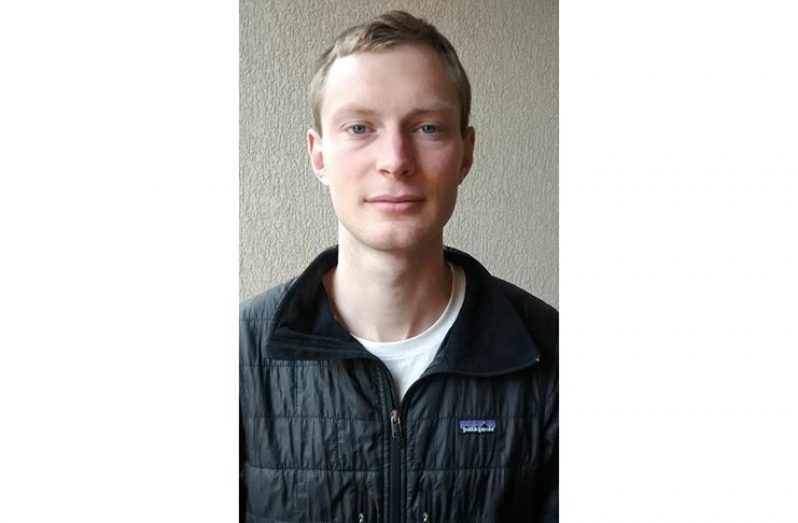By Gibron Rahim
Our country, and the world, is undoubtedly facing one of the most difficult times in its history. COVID-19 poses a serious threat to all residents of Guyana. For this reason, we all must unite to face this threat. We especially need to take care of the vulnerable among us. Guyana’s migrant community is among these vulnerable groups.
The Pepperpot Magazine spoke to two representatives of Voices GY regarding the vulnerability of Guyana’s migrant community. The locally-founded organisation has become known for its efforts to promote languages, cultures and social cohesion and its assistance in humanitarian projects. Voices GY’s Charlie Tokeley related that Guyana’s migrant population is quite diverse. Venezuelans make up a large proportion, he said, with it being estimated that there were approximately 36,000 at the beginning of 2019. There are also Cuban, Haitian, Brazilian and Chinese migrants.
The reasons for migration are as diverse as the migrants themselves, he said. Some migrants have come to Guyana to work in the mining and construction sectors. There are also those migrants who seek better economic conditions or are fleeing oppressive conditions. Tokeley noted that there is a grey area when it comes to the terminology used to refer to migrants, refugees and asylum seekers. Guyana is not a signatory to the 1951 Refugee Convention and hence does not recognise refugee status.
Tokeley’s fellow representative, Christian Vargas, noted the importance of the distinction in the terminology. As an example, he pointed out that those migrants who come to Guyana to work in specific sectors have more income than those who have fled their countries due to political or economic strife. These distinctions even hold true within a single demographic, he said. Cubans coming to Guyana to work in the medical field, shop and return home or seeking asylum is an example of such a case.

The vulnerabilities of the migrants also vary. Among the most significant is the language barrier, as Tokeley noted. “There are migrants, refugees who don’t understand English and won’t receive much information in English or in other languages,” he said. He related that bridging that barrier is particularly important given the ongoing COVID-19 pandemic. For any action plan tackling the situation to be successful, there cannot be differences in the information received by segments of the population nor can there be a lack of information for one segment of the population, Tokeley said. “It needs to be comprehensive, it needs to reach all corners of the population.”
Such a comprehensive plan begins by making information available to the public in different languages and ensuring that such information is accessible to all. Voices GY has recently conducted a survey in English and Spanish to gauge differences in knowledge about COVID-19. “We saw some quite significant differences,” Tokeley said. For instance, one question tested respondents’ knowledge of steps to take if they suspect they may have contracted COVID-19. Among the Spanish-speaking community, 73 percent of respondents answered correctly. This contrasted with over 90 percent of English-speaking respondents answering the same question correctly.
Lost in translation
One notable issue is that the COVID-19 hotline is in English. “So if you have symptoms or you want to find out what to do or someone in your family is starting to feel unwell, even if you know you need to call the hotline, the answer is going to be in English,” Tokeley stated. Voices GY tried calling the hotline as a test. The representatives conceded that they were eventually put on to a Spanish speaker and that was good news. However, they noted that the process required patience, determination and confidence. Tokeley pointed out that there needs to be a more direct way for non-English speakers to receive a response in their languages.
Employment
Employment is another area in which migrants are currently vulnerable, both in general and in terms of the COVID-19 pandemic. Tokeley related that many migrants do not have formalised work situations. He said that many migrants are employed in face-to-face roles involving customer service, leading to increased exposure and potential of contracting COVID-19. Others are employed in precarious, low-paying jobs and simply cannot afford to take time off from work. Their legal status might also prevent some migrants from seeking medical attention. Additionally, some migrants live in crowded areas where there are already issues with sanitation and hygiene or in remote regions of Guyana where they must already contend with other illnesses.
Vargas was sure to note that many of the problems facing migrant communities also face the more vulnerable parts of the Guyanese population. These include difficulties in accessing clean water and living in overcrowded conditions. Vargas noted that their living conditions prevent them from practising prescribed social distancing.
An added burden for migrant communities is that aid efforts cannot take place with the current situation. One instance of this is the United Nations High Commissioner for Refugees (UNHCR) needing to suspend its resettlement programmes for the time being. Such unavoidable precautions mean that refugees have been left without support.
Monitoring the outbreak among migrants
Efforts to keep the migrant population safe will also keep the rest of the population safe, as Tokeley pointed out. “It’s also important because there needs to be some way to monitor the outbreak,” he said. Should a COVID-19 outbreak infiltrate vulnerable communities where cases may not be reported, it may hinder monitoring of outbreak severity and locations to protect everyone. In an effort to prevent such an eventuality, a representative from the Ministry of Public Health noted that the Ministry’s reports on the COVID-19 situation in Guyana are currently being translated into Akawaio and another Indigenous language, in addition to Spanish. Further efforts are also being made to have messages and information from the Ministry of Public Health translated into all 10 of Guyana’s indigenous languages.
Fortunately, much can be done to prevent a disastrous outcome. Increased dialogue between the Ministry of Public Health and NGOs and civil society organisations that work with vulnerable migrants and refugees is one area that Tokeley noted would be invaluable in the fight against COVID-19. These organisations would then be able to communicate the information they learn to the populations they serve. “There needs to be that link in communication,” stated clearly. “We need to have some type of channel of information where things are flowing both ways.”
Most recently Voices GY has begun directing its efforts into a civil society coalition, identifying areas of collaboration that would allow those organisations to assist all sectors of the vulnerable demographic, not just the migrant community, across all 10 regions of Guyana. “The idea is [that] working together we will be able to reach the most vulnerable in the country,” according to Tokeley. This is an effort to ensure that information reaches these groups and also that they receive assistance at this critical time.
The organisations involved thus far are Voices GY, Food For The Poor (Guyana) Inc., Guyana Women Miners Association, SASOD Guyana, Catholic Charities Guyana – Migration Support, Guyana Deaf Association, Humanity First Guyana, Guyana National Youth Council, Blossom Inc. and PAHO/WHO. Two initiatives have already come from this collaboration. One of these involved the handing out of hygiene kits and food supplies in Region Seven. The other is an initiative where three of the organisations are collaborating to also provide supplies in Region Seven.
The efforts to prevent COVID-19 are not solely reliant on governments or organisations, however. “It also requires a degree of awareness by everyday citizens,” Tokeley noted. He emphasised that it is a time to unite with a spirit of working together, communicating information to other people and looking out for one another. “If you have friends who speak Portuguese or friends who speak Spanish, try and check up on them, make sure they got the right information, share information with them. This is just something that everyone should try and do to make sure they’re making the full use of their networks.”



.jpg)








